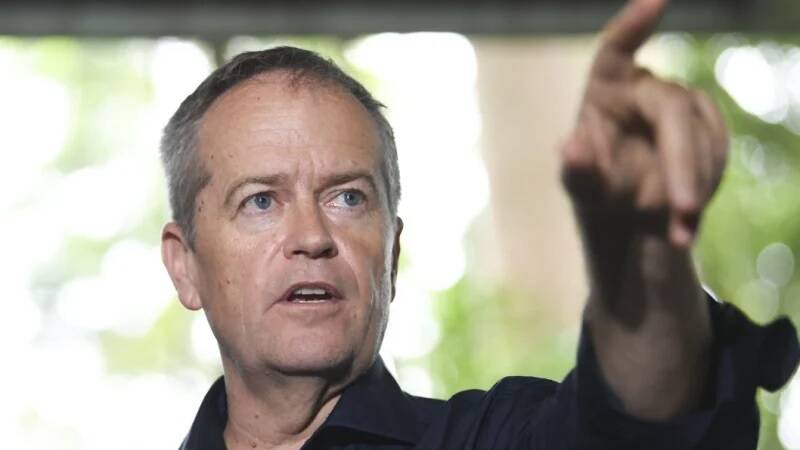
THE Labor Party wants to use the $5 billion Northern Australian Infrastructure Facility to accelerate fracking for onshore gas in the NT.
Subscribe now for unlimited access.
$0/
(min cost $0)
or signup to continue reading
Opposition leader Bill Shorten today said the much maligned fund would be axed and replaced with a new fund focused on pipelines to link gas fields across Queensland and the NT, if he was elected Prime Minister.
The infrastructure fund that was created by the Abbott government with a mandate to sink $5 billion into projects across northern Australia.
Until early this year the only project to be funded was a $16.8 million investment in logistical services in the isolated West Australian community of Onslow.
The office of the Auditor-General earlier this month was critical of the infrastructure fund, noting a lack of transparency around decisions while stating that its internal remuneration practices were inconsistent with the public sector.
Mr Shorten, campaigning in north Queensland where Labor is looking to hold the marginal seat of Herbert while winning the Coalition-held electorates of Leichhardt, Dawson, Flynn and Capricornia, said the fund had failed the people of northern Australia.
The NAIF would be replaced by a development fund that would look to work with private financiers and investors to deliver major projects across Queensland, the NT and WA.
"The NAIF has been an abject failure," he said.
"Labor's Northern Australia Development Fund will provide a financing facility and work with Infrastructure Australia to identify and support projects of national economic significance, such as gas pipelines, in Australia's north."
Labor will set aside up to $1.5 billion for proposed pipelines across Queensland's Galilee and Bowen basins while another line would connect the Beetaloo basin to Darwin and across to the east coast.
Mr Shorten said opening the Beetaloo basin could help turn Darwin into a "manufacturing powerhouse" with the area holding enough gas to supply the domestic market for up to 400 years.
The new fund would also sink $1 billion into tourism projects across northern Australia.
Recommendations from the recent Auditor-General report would be incorporated into the design of Labor's new fund while indigenous Australians would be appointed to its board.
More reading:
Mr Shorten said all existing projects would be honoured with funding capped at $5 billion. This would include $150 million to upgrade airports in Darwin, Alice Springs and Tennant Creek, which while approved by NAIF have yet to be green lighted by the NT government.
Mr Shorten's plan to encourage the unconventional gas industry in Queensland and the Northern Territory is a disastrous move for landholders, regional communities, and the climate, according to Lock the Gate Alliance.
LTGA spokesperson Naomi Hogan said the announcement would not win votes during an election where climate change was at the forefront of people's minds.
"The unconventional gas industry is a massive carbon polluter," she said.
"Fracking for gas in the Northern Territory's Beetaloo Basin could unleash a carbon disaster that would make it impossible for Australia to meet our Paris targets.
"It will raise Australia's emissions by 6%, at a time we need to be bringing them down.
"Fracking the gas out of the Beetaloo Basin has been measured to be the pollution equivalent of building and operating at least 50 new coal fired power stations - it's the wrong move for Australia.
"The CO2 emissions created during the extraction and transport process are far greater than any offsets created by burning the gas for power.
"The industry has also still been unable to address the issue of releasing methane emissions from gas wells.
"Federal Labor has ruled out NAIF funding for the climate wrecking project of Adani, how can it justify propping up an industry that will trash the Northern Territory with fracking?
"There is a growing body of evidence which suggests that the scale of methane emissions from unconventional gas mining and fracking makes it potentially more polluting than coal when burnt for electricity."
Ms Hogan said Mr Shorten's announcement was a slap in the face for regional communities fighting against the invasive unconventional gas industry, particularly those in the Northern Territory.
"Territorians are overwhelmingly opposed to the onshore gas fracking industry," she said.
"There have been ongoing protests since the Gunner Government lifted the moratorium on the fracking industry last year, and these will no doubt increase if a future Shorten Government ignores the will of the people and encourages fracking in the NT."

